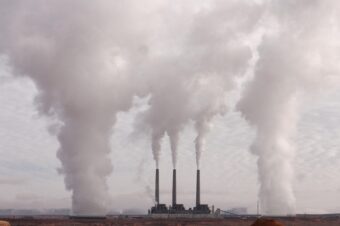
Excessive air pollution in certain areas of the United States influences households’ decisions to relocate, but only wealthier families can afford to settle in areas with satisfactory air quality, researchers from Lancaster University reveal.
Their study, published in the journal Environmental and Resource Economics, examines migration data from county to county between 2010 and 2014 provided by the U.S. Internal Revenue Service (IRS).
Instead of relying solely on aggregate migration flows, the researchers utilized more detailed data on migrating households, such as income levels, which revealed a clear link between the economic status of households and their choice of a new living environment.
The results show that there are inequalities in exposure to the most polluted areas – poorer families are the most affected, while wealthier households choose to move to cleaner and healthier areas, which are usually more expensive.
“This shows that it’s not just improvements in air quality standards and toxic release inventory reporting that matter when it comes to environmental justice – income inequality also needs to be considered, as it’s clear that some families may be forced to live in polluted areas, leading to poorer health outcomes,” says the study’s co-author, Dr. Anita Schiller.
More:
- EU: Citizens Can Now Seek Compensation from Polluters
- Local Resistance Against Lithium Mines – A Global Phenomenon
- Sand and Dust Storms are More Intense and Frequent, Threatening Agriculture and Communities
Polluting Companies “Choose” Poorer Areas
The Lancaster University experts’ study builds on previous research by academics that explored the behavior of polluting companies to determine whether these companies strategically choose their locations based on the demographic characteristics of the population.
Focusing on Texas, the researchers found a correlation between lower-income areas and an increased likelihood of companies that potentially pollute the environment being located in those areas.
“This creates a vicious cycle where companies strategically place polluting facilities in poorer areas, while the environmental burden disproportionately impacts vulnerable communities. Meanwhile, wealthier households can effectively ‘vote with their feet’ and avoid these negative impacts,” emphasized Professor Dakshina De Silva, co-author of the study.
